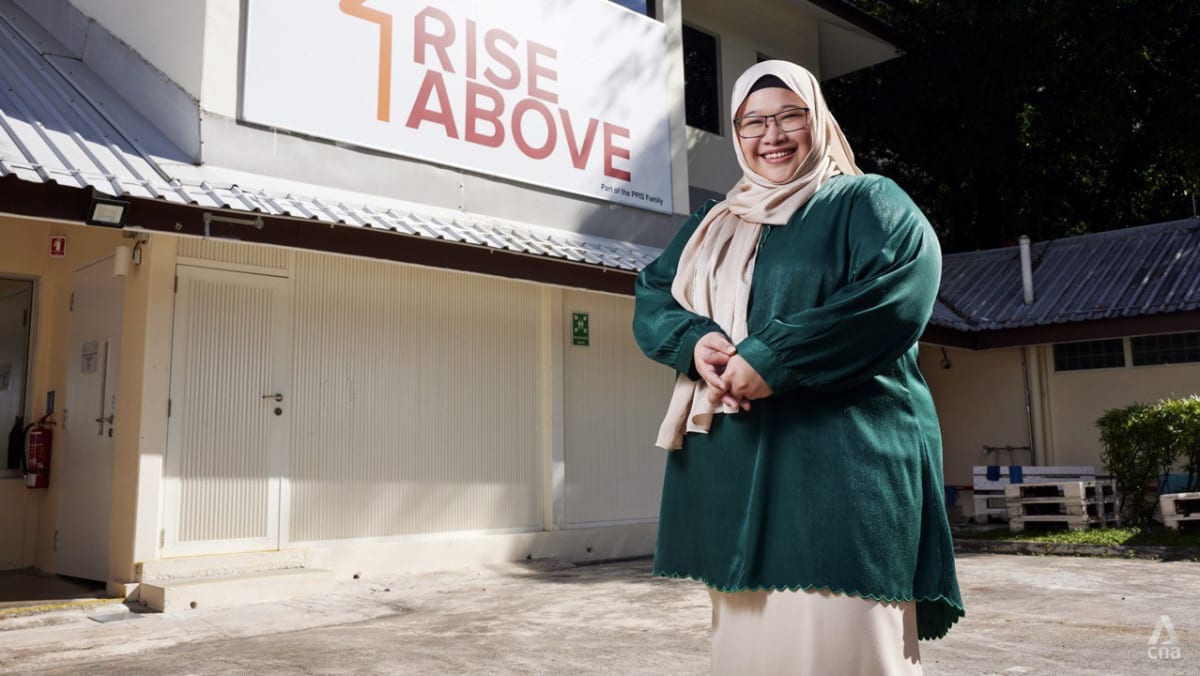It was a weekday morning when I arrived at Rise Above Halfway House, a rehabilitative centre where inmates spend the last part of their prison sentence to help them reintegrate into society.
The front yard was empty. So I asked a couple of staff for Saleha Rashidi, the centre manager of Rise Above Halfway House, whom I had arranged to meet. I was quickly ushered into a large room where I was told to wait. There had been “an incident”, said the staff member. She would not elaborate further.
I waited for half an hour before Saleha arrived. When she came, she told me that a resident was being sent back to prison.
Sometimes, this happens when residents repeatedly flout rules such as curfews, or bring prohibited items such as cigarettes, lighters, sharp objects or drugs into the halfway house, she explained.
A Singapore Prison Service van is then sent to pick up the resident, and the halfway house goes into a short movement-freeze where residents are not allowed to move about freely during this time – this was what was taking place when I arrived at Rise Above Halfway House.
“This is to protect the dignity of the one sent back, so that it doesn’t become a show,” Saleha said.
Such events are stressful and demoralising for both residents and staff. But it happens from time to time among ex-offenders because change can be a rocky road, full of setbacks. Saleha’s job as centre manager of Rise Above Halfway House is to give ex-offenders the opportunity to try again.
Related:
By women for women: This former counsellor runs a shelter for abused women and their children
HELPING FEMALE EX-OFFENDERS FIND THEIR FEET
Rise Above Halfway House, which is run by the Singapore Muslim Women’s Association, or PPIS, in collaboration with Singapore Prison Service, started operating in September 2022. It is Singapore’s first all-women secular halfway house for ex-offenders of all races and religions.
Before Saleha became its centre manager, the 37-year-old had a decade’s worth of experience in social work at PPIS. By then, she was looking for a meaningful challenge, so when PPIS was setting up Rise Above, she joined the team where she worked on its manuals and site renovations.
The residents undergo a period of adjustment to get them ready to re-integrate into society. Residents usually spend six to 12 months at the halfway house. “This may sound very short, but it is like a camp that never ends,” said Saleha, only half-joking.
For example, Saleha and her team ensure that residents have an EZ-Link card and access to Singpass. Those who have been imprisoned for longer may need a new Gmail account and to also learn basic digital skills like how to use QR codes, she added.
“They have different specialities. But generally, they all love spicy food. And their spicy is volcano spicy,” laughed Saleha.
The women also enjoy recreational activities such as badminton, movie nights, or simply sitting around the courtyard when the weather is cool. Some have hidden talents – one resident was the winner of the songwriting competition in prison and performed her song at the halfway house’s year-end party.
Work at a residential setting like this can be very intense – Saleha often finds herself working late. Sometimes, there are exigences, for example when a resident was unwell and had to be sent to hospital at 11pm.
Related:
She created a refuge for abused teenage girls that feels like a real home: 'They have gone through so much'
A SPACE TO START OVER
These are sacrifices Saleha happily makes for a place she helped to set up from scratch. “There are a lot of good memories here,” she said, sharing that she even painted the murals on the walls on her birthday last September, with the help of volunteers.
Saleha added that two residents who had previously been recalled to prison have returned to Rise Above Halfway House, and were doing much better on their return.
She noted that ex-offenders come up against many challenges when starting afresh. Some are plagued by self-doubt. Some struggle against the influence of relationships with partners who use drugs or are in gangs. Others simply lack family support.
While more employers are inclusive and supportive of ex-offenders today, there are still some who hesitate to give them a chance, she added.
“Some employers do not bother to interview (residents). When they hear that they are staying in a halfway house, they put down the phone.
“Sometimes during the interview, when they hear that residents have a (prison) record, they will tell them they cannot be in this industry. One of my social workers also encountered somebody saying, ‘I don’t want (the residents) to keep drugs in the workplace’,” she said.




